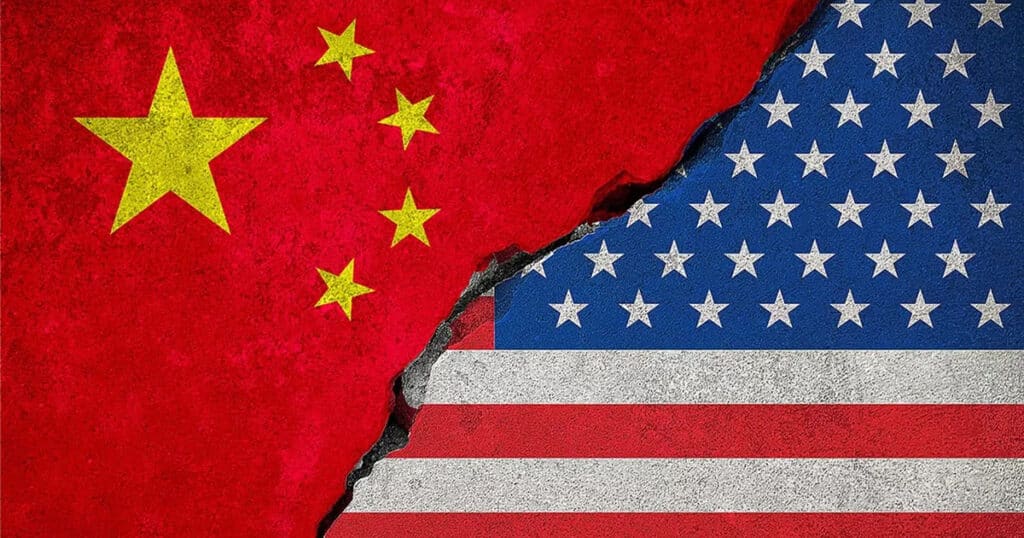
To Put Iran on Ice, the U.S. Must Freeze Out China
Iran, known as the head of the octopus for its terrorism proliferation, may be getting a lifeline from the country known as the dragon—China. Beijing has reportedly offered Iran air defense assets and fighter jets—if true, a clear effort to deter future U.S. or Israeli action against Iran. Chinese denials carry little weight. The United States must prevent China from bailing Iran out, including by enforcing sanctions on Iran-China oil trade and threatening consequences if Beijing restores Iran’s air defenses.
The U.S. military’s successful operation against three Iranian nuclear sites displayed American willingness to boldly strike adversaries’ strategic assets, bolstering deterrence against the China-Russia-Iran-North Korea axis. Yet, truly advancing U.S. strategic aims requires weakening the growing ties between Washington’s enemies.
By resuscitating Iran’s debilitated air defenses, China could insulate Iran from future strikes and change the U.S. and Israeli cost calculus. Reportedly, China is considering supplying Iran its J-10C fighters, China’s version of the F-16, and potentially its HQ-9 air defenses — a similar system to the Russian S-300s that formed Iran’s air defense backbone before Israel eliminated them. The HQ-9 bears similarities to the U.S. Patriot system and helped Pakistan significantly in its May skirmish with India.
Strategic cooperation of this sort is not hypothetical. Prior to the war, China helped Iran gear up to attack Israel, supplying Iran in February with ammonium perchlorate for missile propellant. Despite the combustible mix exploding inside Iran in April, killing dozens, Iran re-ordered ammonium perchlorate from China in June—enough to make propellant for 800 ballistic missiles.
Showcasing the close bilateral relationship, two days after the war’s end, Iran’s defense minister flew to China for a meeting of the Russian- and Chinese-led Shanghai Cooperation Organization (SCO) bloc—of which Iran is a member. Iran’s foreign minister then traveled to China for an SCO meeting on July 15.
During the war, China continued filling the regime’s coffers, as Iran exported a record 1.8 million barrels of oil to China daily at the war’s peak. Tehran needs this trade far more than Beijing does—China imports just 14 percent of its oil from Iran, while Iran exports 90 percent of its oil to China—but by keeping Iran cash-liquid, China puts a thorn in the side of America and its partners. This illicit commerce reaps Iran some $70 billion annually, helping it skirt Western sanctions and fund its destabilizing aggression.
Beijing formally stopped selling arms to Iran two decades ago—but this is mere sleight of hand. The two nations formalized a strategic partnership in 2016 and a 25-year cooperation agreement in 2021 explicitly involving military ties. Chinese firms supply Iran with drone and missile engines. Several Chinese weapons companies operate in Iran, where one produces aluminum powder for Iran’s missile program.
Known unknowns about China’s recent help to Iran also abound. During the war, from June 14 to 19, five Chinese planes—ostensibly flying to Luxembourg—traveled through Turkmenistan towards Iran, then turned off their transponders. If the planes indeed landed in Iran, what they brought in or took out is anybody’s guess.
China also abets Iran’s terror proxies. China reportedly trained Hamas leadership on arms manufacturing, helping turn underground Gaza into a sprawling makeshift weapons factory. Houthi drones now utilize Chinese hydrogen fuel cells, tripling their range and making them harder to detect. In early July, Chinese naval officers shined lasers at German pilots in the European Union’s counter-Houthi task force. A Chinese satellite firm serves as the Houthis’ eyes in the skies. By facilitating the Houthis’ deadly strikes on innocent seafarers, China has blood on its hands.
While Israeli and U.S. strikes devastated Iran’s nuclear and military capabilities, China, by revitalizing Iran’s air defenses and missile program, could deter strikes against future Iranian nuclear advances. U.S. officials must closely monitor developments and aggressively sanction Chinese firms helping arm Iran. Some of this work has started, but Washington must avoid the whack-a-mole game of sanctioning low-level players.
Mirroring its Russia energy sanctions, the United States needs a full-court-press against Beijing’s largesse to Tehran. Washington must apply and enforce sanctions on shipping companies, ports, tankers, and Chinese corporate leaders facilitating the China-Iran oil trade. History shows that rigorous enforcement works: the first Trump administration largely curtailed China-Iran oil trade and deprived Iran of some $200 billion, but sanctions enforcement subsequently lapsed. Oil exports to China are Iran’s greatest lifeline — and the United States must close the valves in every way possible.
Finally, American leaders should vow to target any new Chinese weapons systems that arrive in Iran. Moscow’s demurral to resupply Tehran after Israel eliminated Iran’s Russian-made S-300 air defenses last October shows the obvious: Iran’s backers do not want a bad return on investment.
The Iranian regime is barely treading water. China cannot be permitted to throw it a lifeline.
Vice Admiral Robert Harward, USN (ret.) is the former Deputy Commander of United States Central Command and a 2022 Jewish Institute for National Security of America (JINSA) Generals & Admirals Program participant.
Yoni Tobin is a senior policy analyst at JINSA.
This article was originally published by RealClearDefense and made available via RealClearWire.



